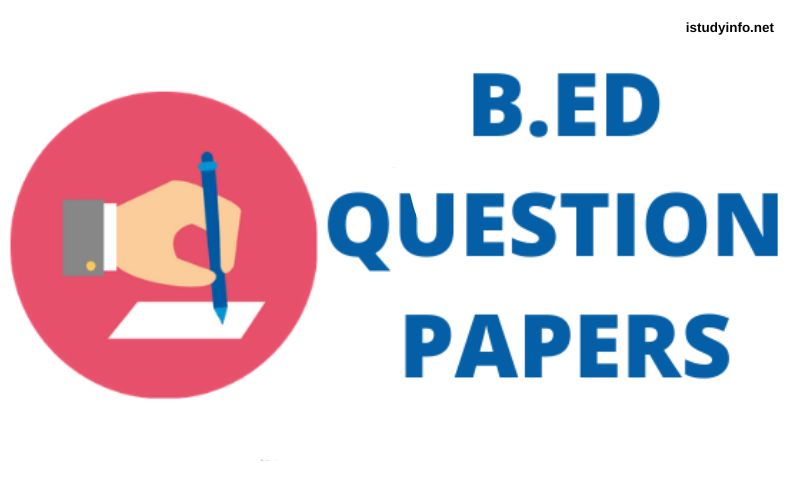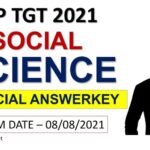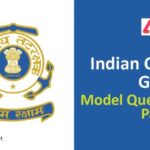The Bachelor of Education (B.Ed) program at Punjabi University in Patiala, Punjab, is renowned for its rigorous curriculum designed to prepare future educators with the necessary skills and knowledge for effective teaching. One crucial aspect of this program is its examination system, which evaluates students’ understanding of educational theories, teaching methodologies, and practical applications. Over the last five years, the question papers of the B.Ed program at Punjabi University have evolved to reflect changing educational trends and priorities. This article aims to provide a detailed analysis of these question papers, highlighting key trends, recurring themes, and the structure of assessments.
Overview of the B.Ed Program at Punjabi University
Punjabi University, established in 1962, has been a prominent institution in the field of higher education in Punjab. The B.Ed program offered by the university is structured to provide a comprehensive understanding of educational psychology, pedagogical practices, curriculum development, and educational leadership. It is a two-year program consisting of theoretical courses, practical teaching experiences, and assessments aimed at evaluating students’ competence in various aspects of teaching.
Structure of B.Ed Question Papers
The examination system for the B.Ed program at Punjabi University typically includes both internal assessments and end-of-semester examinations. The question papers are designed to assess students’ knowledge, critical thinking skills, and ability to apply theoretical concepts in practical teaching scenarios. Generally, the structure of B.Ed question papers includes:
- Multiple Choice Questions (MCQs): These questions assess students’ factual knowledge and understanding of fundamental concepts in education. They often cover a wide range of topics from educational psychology to teaching methodologies.
- Short Answer Questions: These questions require students to provide concise explanations or definitions of key terms, theories, or practices in education. They assess the depth of understanding and clarity of students’ responses.
- Long Answer Questions: These questions are more elaborate and may require students to demonstrate their analytical skills, critical thinking abilities, and ability to apply theoretical knowledge in practical contexts. They often involve discussing educational theories, analyzing case studies, or evaluating teaching strategies.
- Practical/Application-Based Questions: These questions assess students’ ability to apply theoretical knowledge in real-world teaching scenarios. They may involve designing lesson plans, assessing student performance, or addressing classroom management issues.
- Essay-Type Questions: These questions require students to write in-depth essays on specific topics related to education. They evaluate students’ ability to articulate their ideas clearly, analyze complex issues, and present coherent arguments supported by evidence.
Analysis of Question Papers from the Last Five Years
To provide a comprehensive analysis, let’s delve into the trends observed in the B.Ed question papers from Punjabi University over the last five years:
Year 1: 2019
The question papers in 2019 focused on laying a strong foundation in educational theories and teaching methodologies:
- Educational Psychology: There was a significant emphasis on theories of learning, motivation, and personality development. Students were tested on their understanding of concepts like behaviorism, constructivism, and cognitive development theories.
- Pedagogical Practices: Questions related to effective teaching strategies, lesson planning, and classroom management were prominent. Students were required to discuss the role of a teacher in facilitating student learning and creating conducive learning environments.
- Assessment Methods: The question papers included sections on different assessment techniques, such as formative and summative assessments. Students were asked to design assessment tools and discuss their importance in monitoring student progress.
Year 2: 2020
In 2020, the question papers reflected a broader scope, incorporating emerging trends in education:
- Inclusive Education: There was an increased focus on inclusive education practices and strategies for accommodating students with diverse learning needs. Questions addressed the principles of inclusive education and the role of teachers in promoting inclusive practices.
- Curriculum Development: Students were tested on their knowledge of curriculum design, implementation, and evaluation. The question papers included discussions on curriculum models, educational objectives, and the alignment of curriculum with educational goals.
- Educational Leadership: There was an emphasis on the role of educational leaders in school management and improvement. Questions covered topics such as leadership styles, decision-making processes, and professional development for educators.
Year 3: 2021
The question papers in 2021 continued to evolve, reflecting contemporary educational issues and global perspectives:
- 21st Century Skills: There was a notable focus on developing students’ 21st-century skills such as critical thinking, creativity, collaboration, and communication. Questions explored the integration of these skills into teaching practices and their importance in preparing students for future challenges.
- Educational Technology: The use of educational technology and digital tools in teaching and learning was highlighted. Questions addressed the benefits and challenges of technology integration, digital literacy skills, and the role of technology in enhancing educational outcomes.
- Environmental Education: There was an increased emphasis on environmental sustainability and the integration of environmental education into the curriculum. Students were required to discuss strategies for incorporating environmental themes into teaching practices.
Year 4: 2022
In 2022, the question papers reflected a shift towards addressing mental health and well-being in educational settings:
- Mental Health Awareness: There was a focus on understanding mental health issues among students and teachers. Questions addressed strategies for promoting mental well-being, identifying signs of mental distress, and providing appropriate support in educational settings.
- Global Education: The question papers included discussions on global citizenship education and preparing students for a globalized world. Students were tested on their knowledge of global issues, cultural diversity, and the role of education in fostering global awareness.
- Educational Research: There was an emphasis on research methodologies and their application in educational settings. Questions covered topics such as research design, data collection methods, and ethical considerations in educational research.
Year 5: 2023
The question papers in 2023 continued to reflect current educational trends and emerging priorities:
- Artificial Intelligence in Education: There was a focus on the integration of artificial intelligence (AI) and machine learning in education. Questions explored AI-powered educational tools, personalized learning platforms, and the ethical implications of AI in educational settings.
- Social-Emotional Learning (SEL): There was an emphasis on promoting social-emotional skills among students. Questions addressed the importance of SEL in education, strategies for fostering social-emotional competencies, and the role of teachers in supporting students’ emotional development.
- Educational Policy: The question papers included discussions on national and international educational policies. Students were tested on their understanding of policy frameworks, policy implementation strategies, and the impact of policies on educational practices.
Key Insights from the Analysis
The analysis of B.Ed question papers from Punjabi University over the last five years reveals several key insights:
- Integration of Contemporary Issues: There is a consistent effort to integrate contemporary educational issues such as inclusive education, digital literacy, environmental sustainability, and mental health awareness into the curriculum.
- Focus on Practical Application: The question papers emphasize practical application of theoretical knowledge through case studies, teaching simulations, and real-world scenarios. This approach prepares students for the challenges they may face in actual teaching environments.
- Emphasis on 21st Century Skills: There is a noticeable emphasis on developing students’ 21st-century skills such as critical thinking, creativity, collaboration, and communication. These skills are considered essential for students’ success in a rapidly changing world.
- Adaptation to Technological Advances: The inclusion of topics like educational technology, AI in education, and digital pedagogy reflects the university’s commitment to preparing teachers who are proficient in using technology to enhance teaching and learning outcomes.
- Global Perspective: There is an increasing awareness of global educational issues and the importance of preparing students to be global citizens. Topics like global education, cultural diversity, and international educational policies are integral parts of the curriculum.
Conclusion
The analysis of B.Ed question papers from Punjabi University provides valuable insights into the university’s approach to teacher education and assessment. By examining the structure, content, and themes of these question papers over the last five years, we gain a deeper understanding of the evolving trends in teacher preparation and educational priorities. The emphasis on contemporary issues, practical application of knowledge, integration of technology, development of 21st-century skills, and global perspectives underscores the university’s commitment to equipping future educators with the competencies needed to meet the demands of modern education. As educational landscapes continue to evolve, Punjabi University’s B.Ed program remains at the forefront of preparing competent and innovative teachers for the challenges of tomorrow’s classrooms.
















